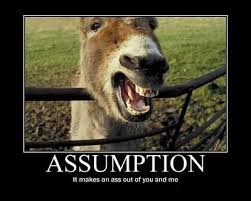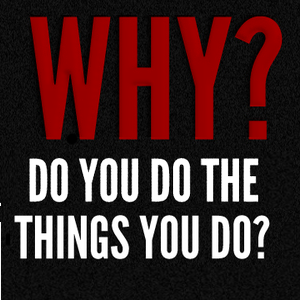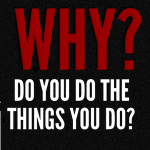Does designation define personality or personality defines designation ? Confused? Either ways you think, you are absolutely correct. Every professional in this world has some sort of personality that differentiates him/her from the crowd. The reason for this may vary, either they have made themselves to appear so or their profession demands it. In this modern IT market, software QA engineers are the demand of the growth made in this field. They need to possess most or all of the following traits to be highly successful in this field.
“WHY” factor
 I strongly believe that ‘if you have the strong sense of WHY, you can create a beautiful result. Always possess a mind of valid WHY, you should not merely accept anything served in your plate. Try always to clear your WHY card, if that is done you can come up with productive ideas and solutions. You should not pretend as if you are through to any concepts or knowledge transferred, just to leave an fair impression. You should understand that you are here to add value to the project. Ask yourself until you get familiar with every aspect of the project you are assigned with. Remember this simple WHY as the capability to unearth a whole lot of information.
I strongly believe that ‘if you have the strong sense of WHY, you can create a beautiful result. Always possess a mind of valid WHY, you should not merely accept anything served in your plate. Try always to clear your WHY card, if that is done you can come up with productive ideas and solutions. You should not pretend as if you are through to any concepts or knowledge transferred, just to leave an fair impression. You should understand that you are here to add value to the project. Ask yourself until you get familiar with every aspect of the project you are assigned with. Remember this simple WHY as the capability to unearth a whole lot of information.
Assumptions:
A software QA engineer never assumes anything while performing his task. So he never make an ASS out of U and ME because that is how it is spelled. Since childhood we are used to assume some facts in order to proceed with the problems, even the world’s greatest theorems are formulated on assuming some facts. Let me figure out the things a layman assumes while filling up a simple registration page
- Name text box should contain only alphabets
- Mail ID should be in a proper format([email protected])
- Fields marked with asterisk(*) are mandatory to be filled.
- Address line should be separated by using comma or space.
A layman simply applies the common sense which is still not common to find. But just think if the application accepts invalid email ID, mandatory fields can be left blank or if the date of birth accepts future date and many more. This all can lead to troublesome situations. A product is made for the market and you cant expect that he will have the required common sense to use the product. Thus a big question mark arises for the quality of the product, you need to put yourself into various categories of user’s shoes so that you can test the product in all aspects.
Down to Earth
A software QA Engineer is supposed to be unpretentious, approachable and genuine. S/he understands that s/he is the voice of the end users. S/he is here to make the software better. There are often situations when s/he needs to go against a team of developers. If s/he stops reporting a set of bugs with a assumed notion that development team wont put an eye upon them, then it may lead to troublesome situations in a long run. So in order to deal with such situations he needs to possess strong convincing skills so that he can convince the developers and sometimes clients for the changes to be made in the project.
Eagle’s eye
 This analogy works well with software QA engineer,he needs to possess eagle’s eye to become super star in the field of Quality Assurance. Many a times most severe bugs surpass our eyesight if we just have an overlook of a product or application and thus risking the product’s quality. As an QA engineer we need to deeply investigate the project in every aspect. We need to uncover the hidden bugs which can have an severe impact later on if it is not fixed in the initial phase of the development cycle. So he needs to be in proper sync with the development cycle so that bugs cannot be carried forward.
This analogy works well with software QA engineer,he needs to possess eagle’s eye to become super star in the field of Quality Assurance. Many a times most severe bugs surpass our eyesight if we just have an overlook of a product or application and thus risking the product’s quality. As an QA engineer we need to deeply investigate the project in every aspect. We need to uncover the hidden bugs which can have an severe impact later on if it is not fixed in the initial phase of the development cycle. So he needs to be in proper sync with the development cycle so that bugs cannot be carried forward.
Strong Communication:
A software QA engineer needs to communicate with various individuals involved in software development cycle in day to day agenda. S/he is involved in communicating the bugs discovered, the enhancements required etc not only to the development team but also to the client. In his day to day curriculum he needs to prepare Test Cases, File and report bugs. So he needs to be strong in written communication. If in any situation there is a deviation from this then it may lead to Communication Gap and thus ultimately risking the product’s quality.
These are the traits which I find most important to be there in an QA engineer. S/he is supposed to wear several hats while working. S/he is the Quality manager, customer service, tech savvy user, non tech savvy user, angry user, lazy user and last but not least the quality assurance engineer. Many a times s/he has to change her/his thoughts mid-stream, and adopt a different point of view in order to get the job done properly. To most extent a company’s brand solely lies upon her/him. So, above all s/he has to work keeping in mind the company’s image.




